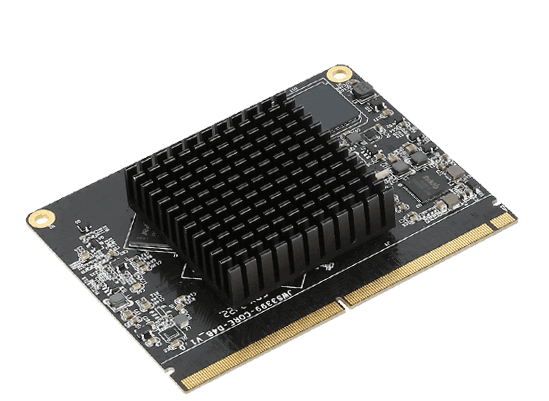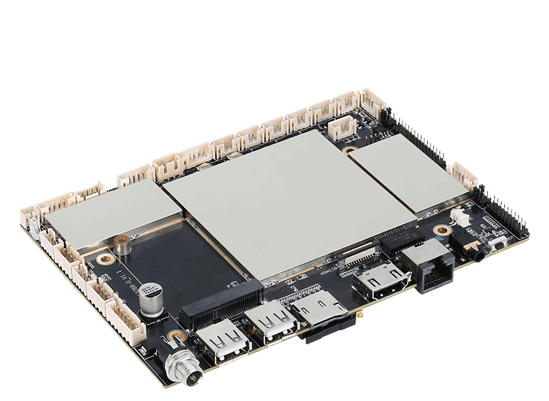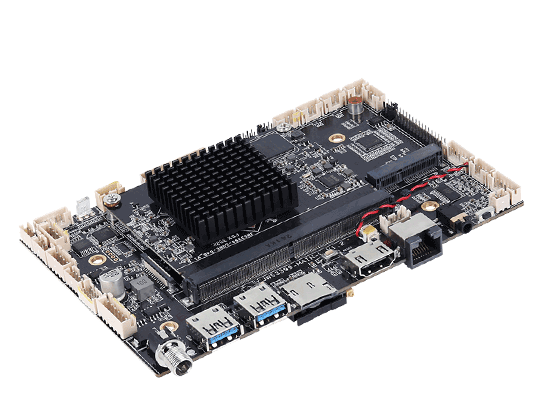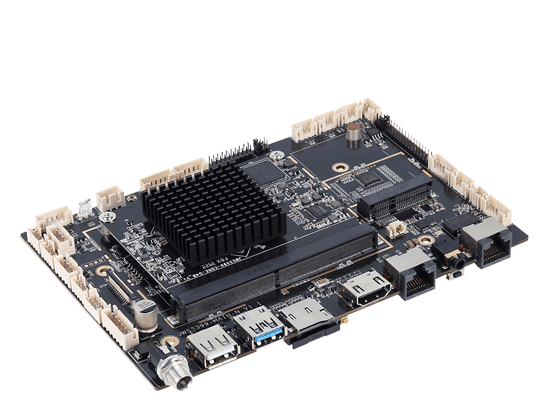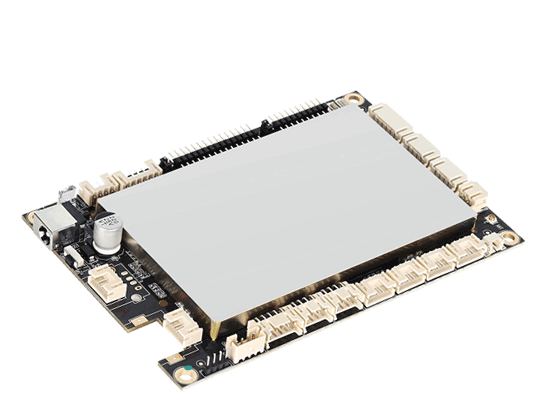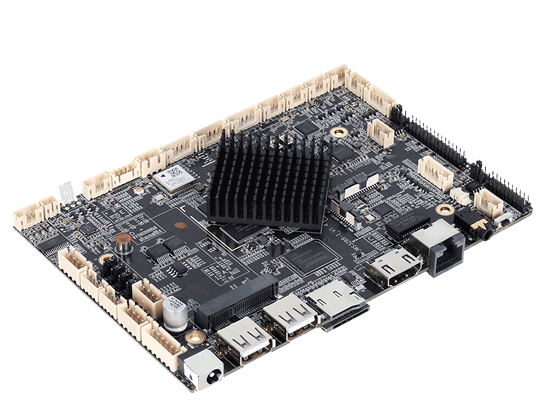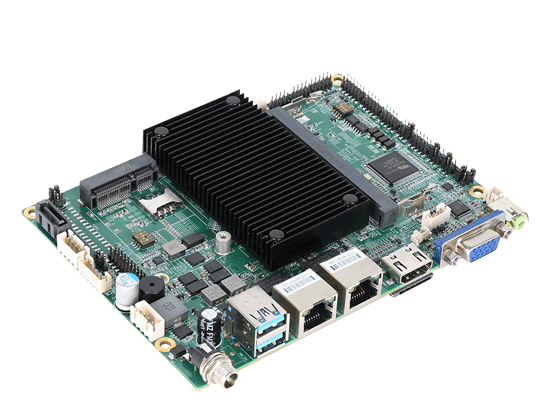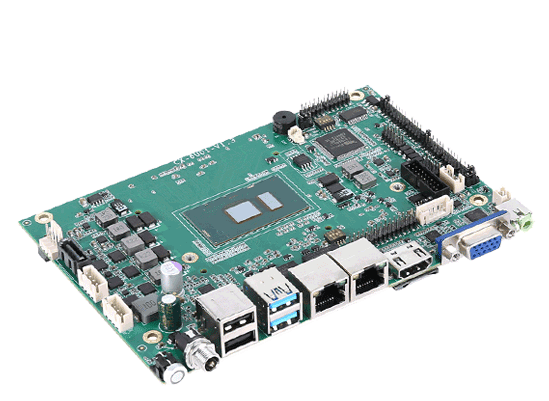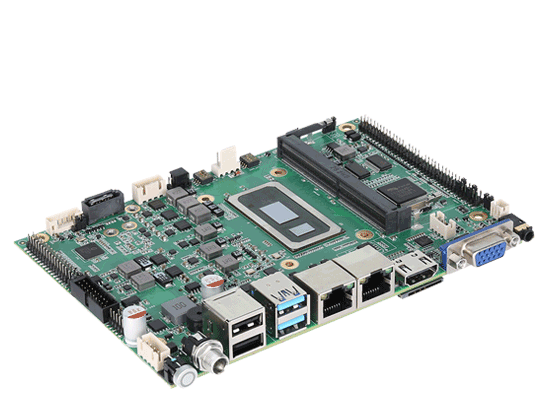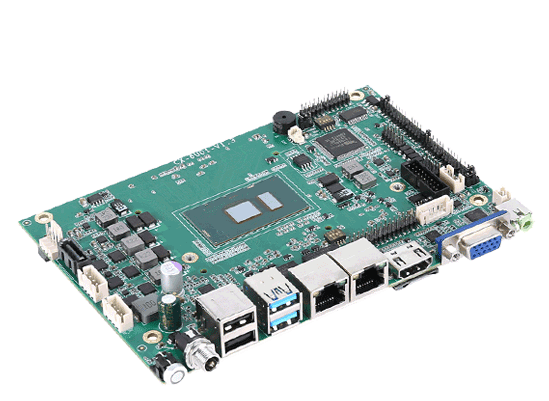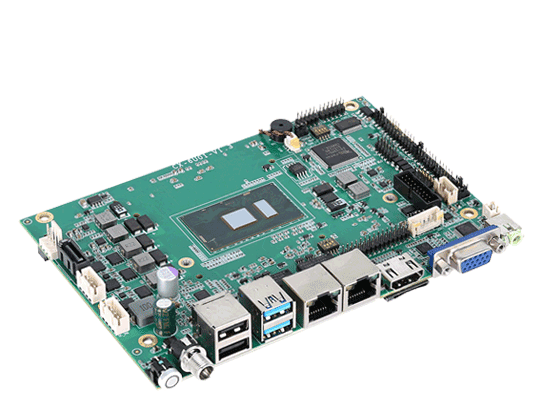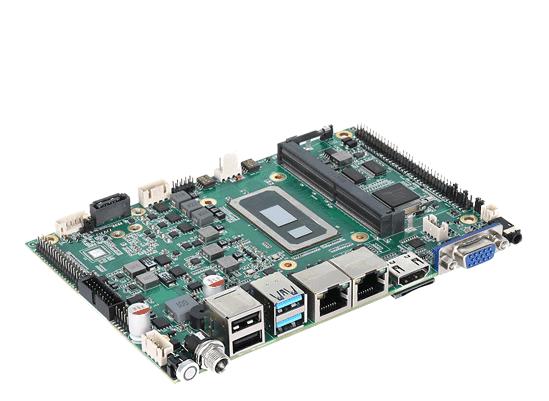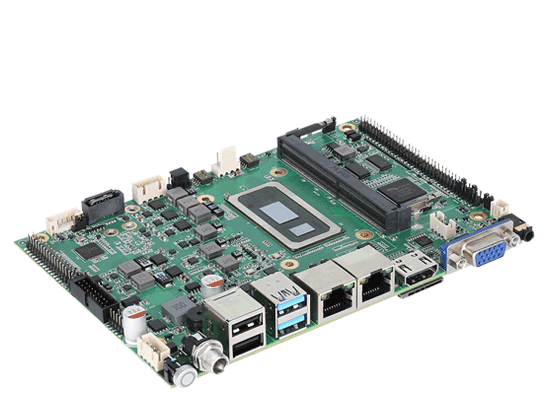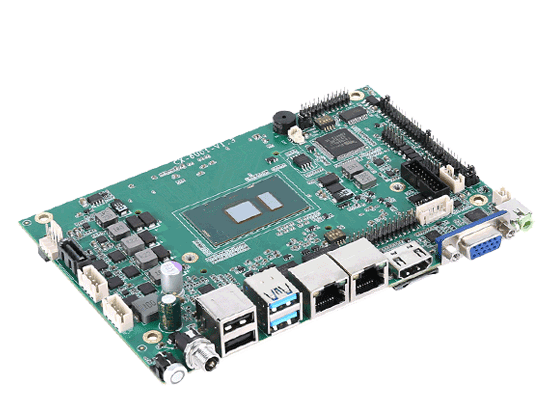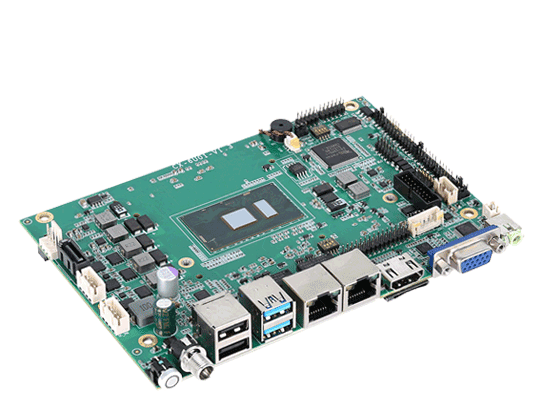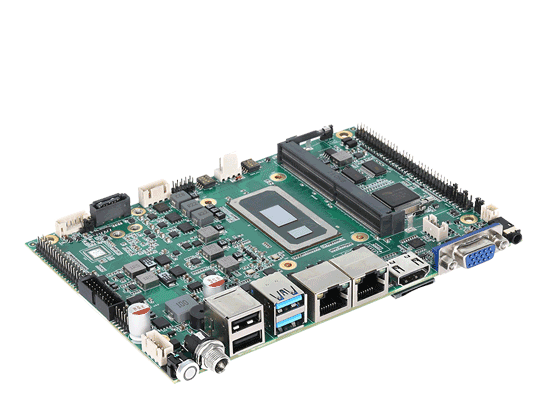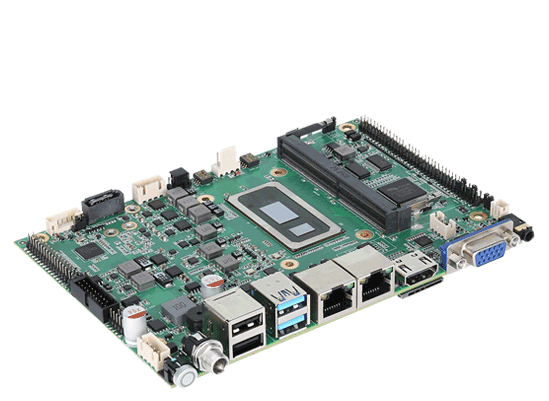einplatinencomputer Ubuntu
Touchfly Einplatinencomputer mit Ubuntu vereinen kompakte Größe und hohe Leistung und bieten vielfältige Konfigurationsmöglichkeiten. Wir unterstützen variable RAM- und Speicherkonfigurationen sowie kundenspezifische I/O-Schnittstellen.
- Touchfly-Einplatinencomputer mit Ubuntu finden breite Anwendung im Bereich der industriellen Automatisierung.
- Touchfly Einplatinencomputer unterstützen Ubuntu, Intel x86, ARM, Windows und Android.
- Touchfly Einplatinencomputer mit Ubuntu werden von unseren Kunden in den Bereichen industrielle Touchscreens, industrielle All-in-One-Steuerungscomputer und industrielle Fertigung häufig eingesetzt.
einplatinencomputer Ubuntu
ARM-Einplatinencomputer Ubuntu
Die Touchfly ARM iSingle-Board-Computer der Ubuntu-Serie umfassen die Formfaktoren 3,5 Zoll SBC, Mini-ITX und Pico-ITX und zeichnen sich durch umfangreiche I/O-Schnittstellen, Erweiterungsmöglichkeiten, hohe Flexibilität und Softwareintegration für industrielle Anwendungen aus.
- Rockchip RK3399 2x Cortex-A72 CPU 1,8 GHz, 2x Cortex-A53 CPU 1,4 GHz, DDR4 eMMC
- 1 x USB Typ C, 1 x USB 2.0, 1 x USB 3.0, 4 x USB-Buchsen; Serielle Schnittstellen: 1 x RS485, 2 x RS232, 1 x RS485, 1 x Debug-Port
- 1 x LVDS, 1 x eDP, 2 x Ethernet 100/1000M, 4K/60Hz, PCI-E 3G/4G, WLAN, Bluetooth 5.0, 1 x SATA-Festplatte, 1 x HDMI-Ein-/Ausgang, AV-Ausgang, TF-Kartenleser, Kopfhöreranschluss
- Breiter Temperaturbereich: -20 °C bis 70 °C, Breiter Druckbereich: 12 V bis 36 V; ESD: 4 kV (kontaktiert), 8 kV (Luft)
- Betriebssystem: Android 7.1/9.0/11, Ubuntu 18.04, Debian 10.0, Linux 4.4 + QT
- Speicher, EMMC, Weitbereichsspannungsmodul, 4G-Modul, Schutzlackierung, benutzerdefiniertes Boot-Logo und andere reguläre Upgrades
- Anpassung des Android-Systems, Referenzcode der Systemaufrufschnittstelle (API), Entwicklung der kundeneigenen Anwendung (APP).
- Die Peripherieprodukte des Motherboards
- Rockchip RK3399 2×Cortex-A72 CPU 1,8 GHz, 4×Cortex-A53 CPU 1,4 GHz, EMMC
- 2 x USB 3.0, 5 x USB 2.0, Serielle Schnittstellen: 2 x RS232, 1 x RS485, 2 x TTL, 1 x Debug
- 1 x LVDS, Multi-Resolution EDP, 1 x Ethernet 1000M, 4K/h.265, PCI-E 3G/4G, 2,4G/5,8G, WLAN 4.0, Bluetooth 4.2, 1 x SATA, 1 x HDMI I/O, AV-Ausgang, TF-Kartenleser, Kopfhöreranschluss
- Breiter Temperaturbereich: -20 °C bis 70 °C, Breiter Druckbereich: 12 V bis 36 V; ESD: 4 kV (kontaktiert), 8 kV (Luft)
- Betriebssystem: Android 7.1/9.0
- Speicher, EMMC, Weitbereichsspannungsmodul, 4G-Modul, Schutzlackierung, benutzerdefiniertes Boot-Logo und andere reguläre Upgrades
- Anpassung des Android-Systems, Referenzcode der Systemaufrufschnittstelle (API), Entwicklung der kundeneigenen Anwendung (APP).
- Die Peripherieprodukte des Motherboards
- Rockchip RK3399 2*Cortex-A72 CPU 1,8 GHz, 4*Cortex-A53 CPU 1,4 GHz, EMMC
- 2 x USB 3.0, 5 x USB 2.0 Serielle Schnittstellen: 2 x RS232, 1 x RS485, 2 x TTL, 1 x Debug
- LVDS/eDP/MIPI/HDMI, Multi-Resolution EDP, 2x Ethernet 100/1000 Mbit/s, 4K/h.265, PCI-E 3G/4G, 2,4G/5,8G, BT 4.0, Bluetooth 5.0, 1x SATA, TF
- Breiter Temperaturbereich: -20 °C bis 70 °C, Breiter Druckbereich: 12 V bis 36 V; ESD: 4 kV (kontaktiert), 8 kV (Luft)
- Betriebssystem: Android 7.1/9.0/11/Linux 4.4+QT
Ubuntu 18.04/Debian 10.0
- Speicher, EMMC, Weitbereichsspannungsmodul, 4G-Modul, Schutzlackierung, benutzerdefiniertes Boot-Logo und andere reguläre Upgrades
- Anpassung des Android-Systems, Referenzcode der Systemaufrufschnittstelle (API), Entwicklung der kundeneigenen Anwendung (APP).
- Die Peripherieprodukte des Motherboards
- Rockchip RK3399 2*Cortex-A72 CPU 1,8 GHz, 4*Cortex-A53 CPU 1,4 GHz
- 1 x USB 3.0, 1 x USB 2.0, 4 x USB 2.0 PH2.0, Serielle Schnittstellen: 2 x RS232, 1 x RS485, 2 x TTL, 1 x Debug, 8 x GPIO
- LVDS/eDP/MIPI/HDMI, Multi-Resolution EDP, 2x Ethernet 100M/1000M, 4K/h.265, MinPCIE 4G, M.2 5G, BT 4.0, Bluetooth 5.0, 1x SATA, TF
- Breiter Temperaturbereich: -20 °C bis 70 °C, Breiter Druckbereich: 12 V bis 36 V; ESD: 4 kV (kontaktiert), 8 kV (Luft)
- Betriebssystem: Android 7.1/9.0/11, Ubuntu 18.04, Debian 10.0, Linux 4.4+Q
- Speicher, EMMC, Weitbereichsspannungsmodul, 4G-Modul, Schutzlackierung, benutzerdefiniertes Boot-Logo und andere reguläre Upgrades
- Anpassung des Android-Systems, Referenzcode der Systemaufrufschnittstelle (API), Entwicklung der kundeneigenen Anwendung (APP).
- Die Peripherieprodukte des Motherboards
- Rockchip RK3288 4×Cortex-A17 CPU 1,6 GHz, Mali-T764 GPU, EMMC
- USB OTG*1, USB *3 (fünf Schnittstellen optional), Serieller Anschluss: TTL*3
- 2 x LVDS/MIPI/4K EDP, 2 x 10M/100M Ethernet-Anschlüsse, WLAN, Bluetooth 4.0, 1 x MIPI AV-Ausgang, GPS
- Breiter Temperaturbereich: -20 °C bis 70 °C, Breiter Druckbereich: 12 V bis 36 V; ESD: 4 kV (kontaktiert), 8 kV (Luft)
- Betriebssystem: Android 7.1/9.0
- Speicher, EMMC, Weitbereichsspannungsmodul, 4G-Modul, Schutzlackierung, benutzerdefiniertes Boot-Logo und andere reguläre Upgrades
- Anpassung des Android-Systems, Referenzcode der Systemaufrufschnittstelle (API), Entwicklung der kundeneigenen Anwendung (APP).
- Die Peripherieprodukte des Motherboards
- Rockchip RK3288 4×Cortex-A17 CPU 1,6 GHz, Mali-T764 GPU, EMMC
- 1 x USB 2.0 OTG, 1 x USB 2.0 Host, 6 x USB 2.0, serielle Schnittstelle: 2 x 232, 1 x 485
- 1 x LVDS/MIPI/4K EDP, 3 x Ethernet 10/100M/1000M, WLAN 2,4 GHz, Bluetooth 4.0, 1 x MIPI AV-Ausgang, GPS
- Breiter Temperaturbereich: -20 °C bis 70 °C, Breiter Druckbereich: 12 V bis 36 V; ESD: 4 kV (kontaktiert), 8 kV (Luft)
- Betriebssystem: Android 7.1/10.0
- Speicher, EMMC, Weitbereichsspannungsmodul, 4G-Modul, Schutzlackierung, benutzerdefiniertes Boot-Logo und andere reguläre Upgrades
- Anpassung des Android-Systems, Referenzcode der Systemaufrufschnittstelle (API), Entwicklung der kundeneigenen Anwendung (APP).
- Die Peripherieprodukte des Motherboards
- Rockchip RK3288, Quad-Core Cortex-A17 CPU 1,6 GHz, Mali-T764 GPU, EMMC
- 1 x USB-Host, 1 x USB-OTG, 6 x USB-Schnittstellen, serielle Schnittstelle: 1 x 232 TTL/232-Switch-Port (2x)
- 2 LVDS/MIPI/4K EDP, 3 Ethernet 10M/100M/1000M, WLAN, 4G/3G, TF, SIM, BT 4.2, 1 MIPI AV-Ausgang, GPS, HTMI O/I
- Breiter Temperaturbereich: -20 °C bis 70 °C, Breiter Druckbereich: 12 V bis 36 V; ESD: 4 kV (kontaktiert), 8 kV (Luft)
- Betriebssystem: Android 7.1/10.0/12.0, Linux 4.4, Ubuntu 18.04, Debian 10.0
- Speicher, EMMC, Weitbereichsspannungsmodul, 4G-Modul, Schutzlackierung, benutzerdefiniertes Boot-Logo und andere reguläre Upgrades
- Anpassung des Android-Systems, Referenzcode der Systemaufrufschnittstelle (API), Entwicklung der kundeneigenen Anwendung (APP).
- Die Peripherieprodukte des Motherboards
Intel x86 Einplatinencomputer Ubuntu
Die Touchfly Intel X86 Single-Board-Computer der Ubuntu-Serie umfassen die Formfaktoren 3,5 Zoll SBC, Mini-ITX und Pico-ITX und zeichnen sich durch umfangreiche I/O- und Erweiterungsmöglichkeiten, hohe Flexibilität und Softwareintegration für industrielle Anwendungen aus.
- Intel Celeron J1900 Quad-Core-CPU, 1,99 GHz, TDP 10 W
- 2 x USB 3.0, 6 x USB 2.0 (4 x int, 2 x ext), 6 x 232, 1 x 422, 1 x 485
- 1 x SATA 2.0 + 1 x mSATA, LVDS/EDP/VGA/HDMI, 1 x Ethernet 1000M, WLAN, 3G/4G, Bluetooth, 8 GPIOs, lüfterlos
- Breiter Temperaturbereich: -20 °C bis 70 °C, Breiter Druckbereich: 12 V bis 36 V; ESD: 4 kV (kontaktiert), 8 kV (Luft)
- Betriebssystem: Win7 Pro, Win7 Ultimate, Win10 Pro, Win10 Enterprise, Win10 Home, Ubuntu 16.04.7, Ubuntu1 8.04.5, Ubuntu18.04.6, Ubuntu20.04.1, Centos7.4 Centos7.8 Redhat7.4 Debian7.0
- Arbeitsspeicher, EMMC, WLAN-Modul, 4G-Modul, Schutzlackierung, CPU-Kühlung, benutzerdefiniertes Boot-Logo und andere übliche Upgrades
- Die Peripherieprodukte des Motherboards
- Intel Celeron J4125 Quad-Core-CPU, 2,5 GHz, TDP 10 W, DDR4
- 2 x USB 3.0, 6 x USB 2.0 (4 x int, 2 x ext), 6 x 232, 1 x 422, 1 x 485
- 1 x SATA 3.0 + 1 x mSATA + 1 x M.2, LVDS/EDP/VGA/HDMI, 2 x Ethernet 1000M, WLAN, Mini-PCIe 3G/4G, Bluetooth, 8 GPIOs, lüfterlos
- Breiter Temperaturbereich: -20 °C bis 70 °C, Breiter Druckbereich: 12 V bis 36 V; ESD: 4 kV (kontaktiert), 8 kV (Luft)
- Betriebssystem: Windows 10 Pro, Windows 10 Enterprise, Windows 10 Home, Windows 11 Pro, Ubuntu 16.04.7, Ubuntu 18.04.6, CentOS 7.8, CentOS 8.4
- Arbeitsspeicher, EMMC, WLAN-Modul, 4G-Modul, Schutzlackierung, CPU-Kühlung, benutzerdefiniertes Boot-Logo und andere übliche Upgrades
- Die Peripherieprodukte des Motherboards
- Intel® Core™ i3 Serie 6100U Dual-Core Intel Bay Trail SOC
- 4 x USB 3.0, 4 x USB 2.0 (2 x int, 2 x ext), 6 x 232, 1 x 422, 1 x 485 2COM
- 1 x SATA 3.0 + 1 x mSATA + 1 x M.2, LVDS/EDP/HDMI, 2 x Ethernet 1000M, WLAN, 3G/4G, Bluetooth, 8 GPIOs, lüfterlos
- Breiter Temperaturbereich: -20 °C bis 70 °C, Breiter Druckbereich: 12 V bis 36 V; ESD: 4 kV (kontaktiert), 8 kV (Luft)
- Betriebssysteme: Windows 7 Pro, Windows 7 Ultimate, Windows 10 Pro, Windows 10 Enterprise, Windows 10 Home, Windows 11 Pro, Ubuntu 16.04.7, Ubuntu 18.04.5, Ubuntu 20.04.3, CentOS 7.6, CentOS 7.8
- Arbeitsspeicher, EMMC, CPU, WLAN-Modul, 4G-Modul, Schutzlackierung, CPU-Kühlung, benutzerdefiniertes Boot-Logo und andere übliche Upgrades
- Die Peripherieprodukte des Motherboards
- Intel® Core™ i3 Serie 8145U Dual-Core intel Bay Trail SOC, DDR4
- 4 x USB 3.0, 4 x USB 2.0 (2 x int, 2 x ext), 6 x 232, 1 x 422, 1 x 485 2COM
- 1 x SATA 3.0 + 1 x mSATA + 1 x M.2, LVDS/EDP/HDMI, 2 x Ethernet 1000M, WLAN, 3G/4G, Bluetooth, 8 GPIOs, leiser Lüfter
- Breiter Temperaturbereich: -20 °C bis 70 °C, Breiter Druckbereich: 12 V bis 36 V; ESD: 4 kV (kontaktiert), 8 kV (Luft)
- Betriebssysteme: Windows 10 Pro, Windows 10 Enterprise, Windows 10 Home, Windows 11 Pro, Windows Server 2019/2016, Ubuntu 16.04.7, Ubuntu 18.04.6, Ubuntu 20.04.3, Ubuntu 22.04, CentOS 7.4, CentOS 7.8, CentOS 7.9, Red Hat 7.4, Debian 11.4
- Arbeitsspeicher, EMMC, CPU, WLAN-Modul, 4G-Modul, Schutzlackierung, CPU-Kühlung, benutzerdefiniertes Boot-Logo und andere übliche Upgrades
- Die Peripherieprodukte des Motherboards
- Intel® Core™ i3 Serie 10110U Dual-Core intel Bay Trail SOC, DDR4
- 4 x USB 3.0, 4 x USB 2.0 (2 x int, 2 x ext), 6 x 232, 1 x 422, 1 x 485 2COM
- 1 x SATA 3.0 + 1 x mSATA + 1 x M.2, 1 x HDMI, 1 x VGA, 1 x SATA, 6 x COM, 2 x Ethernet 1000M, 1 x M-PCIE WLAN 3G/4G, Bluetooth, 8 GPIOs, leiser Lüfter
- Breiter Temperaturbereich: -20 °C bis 70 °C, Breiter Druckbereich: 12 V bis 36 V; ESD: 4 kV (kontaktiert), 8 kV (Luft)
- Betriebssysteme: Windows 10 Pro, Windows 10 Enterprise, Windows 10 Home, Windows 11 Pro, Windows Server 2019/2016, Ubuntu 16.04.7, Ubuntu 18.04.6, Ubuntu 20.04.3, Ubuntu 22.04, CentOS 7.4, CentOS 7.8, CentOS 7.9, Red Hat 7.4, Debian 11.4
- Arbeitsspeicher, EMMC, WLAN-Modul, 4G-Modul, Schutzlackierung, CPU-Kühlung, benutzerdefiniertes Boot-Logo und andere übliche Upgrades
- Die Peripherieprodukte des Motherboards
- Intel® Core™ i5 Serie 6200U Dual-Core Intel Bay Trail SOC, DDR4-
- 2 x USB 3.0, 4 x USB 2.0 (2 x int, 2 x ext), 6 x 232, 1 x 422, 1 x 485 2COM
- 1 x SATA 3.0 + 1 x mSATA + 1 x M.2, 1 x HDMI, 1 x VGA, 1 x SATA, LVDS/eDP, 6 x COM, 2 x Ethernet 1000M, 1 x M-PCIE WLAN 3G/4G, Bluetooth, 8 GPIOs, leiser Lüfter
- Breiter Temperaturbereich: -20 °C bis 70 °C, Breiter Druckbereich: 12 V bis 36 V; ESD: 4 kV (kontaktiert), 8 kV (Luft)
- Betriebssystem: Windows 7 Pro, Windows 7 Ultimate, Windows 10 Pro, Windows 10 Enterprise, Windows 10 Home, Windows 11 Pro, Ubuntu 16.04.7, Ubuntu 18.04.5, Ubuntu 20.04.3, CentOS 7.6, CentOS 7.8
- Arbeitsspeicher, EMMC, WLAN-Modul, 4G-Modul, Schutzlackierung, CPU-Kühlung, benutzerdefiniertes Boot-Logo und andere übliche Upgrades
- Die Peripherieprodukte des Motherboards
- Intel® Core™ i5 Serie 7200U Dual-Core Intel Bay Trail SOC, DDR4
- 2 x USB 3.0, 4 x USB 2.0 (2 x int, 2 x ext), 6 x 232, 1 x 422, 1 x 485 2COM
- 1 x SATA 3.0 + 1 x mSATA + 1 x M.2, 1 x HDMI, LVDS/eDP, 1 x VGA, 1 x SATA, 6 x COM, 2 x Ethernet 1000M, 1 x M-PCIE WLAN 3G/ 1 x Mini-PCIE 4G, Bluetooth, 8 GPIOs, leiser Lüfter
- Breiter Temperaturbereich: -20 °C bis 70 °C, Breiter Druckbereich: 12 V bis 36 V; ESD: 4 kV (kontaktiert), 8 kV (Luft)
- Betriebssystem: Windows 7 Pro, Windows 7 Ultimate, Windows 10 Pro, Windows 10 Enterprise, Windows 10 Home, Windows 11 Pro, Ubuntu 16.04.7, Ubuntu 18.04.5, Ubuntu 20.04.3, CentOS 7.6, CentOS 7.8
- Arbeitsspeicher, EMMC, WLAN-Modul, 4G-Modul, Schutzlackierung, CPU-Kühlung, benutzerdefiniertes Boot-Logo und andere übliche Upgrades
- Die Peripherieprodukte des Motherboards
- Intel® Core™ i5 Serie 10210U Dual-Core Intel Bay Trail SOC, DDR4
- 4 x USB 3.0, 4 x USB 2.0 (2 x int, 2 x ext), 6 x 232, 1 x 422, 1 x 485 2COM
- 1 x SATA 3.0 + 1 x mSATA + 1 x M.2, 1 x HDMI, LVDS/eDP/MIPI, 1 x VGA, 1 x SATA, 6 x COM, 2 x Ethernet 1000M, 1 x M-PCIE WLAN 3G/4G, Bluetooth, 8 GPIOs, leiser Lüfter
- Breiter Temperaturbereich: -20 °C bis 70 °C, Breiter Druckbereich: 12 V bis 36 V; ESD: 4 kV (kontaktiert), 8 kV (Luft)
- Betriebssysteme: Windows 10 Pro, Windows 10 Enterprise, Windows 10 Home, Windows 11 Pro, Windows Server 2019/2016, Ubuntu 16.04.7, Ubuntu 18.04.5, Ubuntu 20.04.3, Ubuntu 22.04, CentOS 7.4, CentOS 7.8, CentOS 7.9, Red Hat 7.4, Debian 11.4
- Arbeitsspeicher, EMMC, WLAN-Modul, 4G-Modul, Schutzlackierung, CPU-Kühlung, benutzerdefiniertes Boot-Logo und andere übliche Upgrades
- Die Peripherieprodukte des Motherboards
- Intel® Core™ i5 Serie 10210U Dual-Core Intel Bay Trail SOC, DDR4
- 4 x USB 3.0, 4 x USB 2.0 (2 x int, 2 x ext), 6 x 232, 1 x 422, 1 x 485 2COM
- 1 x SATA 3.0 + 1 x mSATA + 1 x M.2, 1 x HDMI, LVDS/eDP/MIPI, 1 x VGA, 1 x SATA, 6 x COM, 2 x PCI-E Ethernet 1000M, 1 x M-PCIE WLAN 3G/4G, Bluetooth, 8 GPIOs, leiser Lüfter
- Breiter Temperaturbereich: -20 °C bis 70 °C, Breiter Druckbereich: 12 V bis 36 V; ESD: 4 kV (kontaktiert), 8 kV (Luft)
- Betriebssysteme: Windows 10 Pro, Windows 10 Enterprise, Windows 10 Home, Windows 11 Pro, Windows Server 2019/2016, Ubuntu 16.04.7, Ubuntu 18.04.5, Ubuntu 20.04.3, Ubuntu 22.04, CentOS 7.4, CentOS 7.8, CentOS 7.9, Red Hat 7.4, Debian 11.4
- Arbeitsspeicher, EMMC, WLAN-Modul, 4G-Modul, Schutzlackierung, CPU-Kühlung, benutzerdefiniertes Boot-Logo und andere übliche Upgrades
- Die Peripherieprodukte des Motherboards
- Intel® Core™ i7 Serie 6500U Dual-Core Intel Bay Trail SOC, DDR4
- 2 x USB 3.0, 4 x USB 2.0 (2 x int, 2 x ext), 6 x 232, 1 x 422, 1 x 485 2COM
- 1 x SATA 3.0 + 1 x mSATA + 1 x M.2, 1 x HDMI, 1 x VGA, 1 x SATA, LVDS/eDP, 6 x COM, 2 x PCI-E Ethernet 1000M, 1 x M-PCIE WLAN 3G/Mini-PCIE 4G, Bluetooth, 8 GPIOs, leiser Lüfter
- Breiter Temperaturbereich: -20 °C bis 70 °C, Breiter Druckbereich: 12 V bis 36 V; ESD: 4 kV (kontaktiert), 8 kV (Luft)
- Betriebssystem: Windows 7 Pro, Windows 7 Ultimate, Windows 10 Pro, Windows 10 Enterprise, Windows 10 Home, Windows 11 Pro, Ubuntu 16.04.7, Ubuntu 18.04.5, Ubuntu 20.04.3, CentOS 7.6, CentOS 7.8
- Arbeitsspeicher, EMMC, WLAN-Modul, 4G-Modul, Schutzlackierung, CPU-Kühlung, benutzerdefiniertes Boot-Logo und andere übliche Upgrades
- Die Peripherieprodukte des Motherboards
- Intel® Core™ i7 Serie 7500U Dual-Core Intel Bay Trail SOC, DDR4
- 2 x USB 3.0, 4 x USB 2.0 (2 x int, 2 x ext), 6 x 232, 1 x 422, 1 x 485 2COM
- 1 x SATA 3.0 + 1 x mSATA + 1 x M.2, 1 x HDMI, LVDS/eDP, 1 x VGA, 1 x SATA, 6 x COM, 2 x Ethernet 1000M, 1 x M-PCIE, WLAN 3G/4G, Bluetooth, 8 GPIOs, leiser Lüfter
- Breiter Temperaturbereich: -20 °C bis 70 °C, Breiter Druckbereich: 12 V bis 36 V; ESD: 4 kV (kontaktiert), 8 kV (Luft)
- Betriebssystem: Windows 7 Pro, Windows 7 Ultimate, Windows 10 Pro, Windows 10 Enterprise, Windows 10 Home, Windows 11 Pro, Ubuntu 16.04.7, Ubuntu 18.04.5, Ubuntu 20.04.3, CentOS 7.6, CentOS 7.8
- Arbeitsspeicher, EMMC, WLAN-Modul, 4G-Modul, Schutzlackierung, CPU-Kühlung, benutzerdefiniertes Boot-Logo und andere übliche Upgrades
- Die Peripherieprodukte des Motherboards
- Intel® Core™ i7 Serie 8565U Dual-Core Intel Bay Trail SOC, DDR4
- 4 x USB 3.0, 4 x USB 2.0 (2 x int, 2 x ext), 6 x 232, 1 x 422, 1 x 485 2COM
- 1 x SATA 3.0 + 1 x mSATA + 1 x M.2, 1 x HDMI, LVDS/eDP/MIPI, 1 x VGA, 1 x SATA, 6 x COM, 2 x Realtek PCI-E Ethernet 1000M, WLAN 3G/4G, Bluetooth, 8 GPIOs, leiser Lüfter
- Breiter Temperaturbereich: -20 °C bis 70 °C, Breiter Druckbereich: 12 V bis 36 V; ESD: 4 kV (kontaktiert), 8 kV (Luft)
- Betriebssysteme: Windows 10 Pro, Windows 10 Enterprise, Windows 10 Home, Windows 11 Pro, Windows Server 2019/2016, Ubuntu 16.04.7, Ubuntu 18.04.5, Ubuntu 20.04.3, Ubuntu 22.04, CentOS 7.4, CentOS 7.8, CentOS 7.9, Red Hat 7.4, Debian 11.4
- Arbeitsspeicher, EMMC, WLAN-Modul, 4G-Modul, Schutzlackierung, CPU-Kühlung, benutzerdefiniertes Boot-Logo und andere übliche Upgrades
- Die Peripherieprodukte des Motherboards
- Intel® Core™ i7 Serie 10510U Dual-Core Intel Bay Trail SOC, DDR4
- 4 x USB 3.0, 4 x USB 2.0 (2 x int, 2 x ext), 6 x 232, 1 x 422, 1 x 485 2COM
- 1 x SATA 3.0 + 1 x mSATA + 1 x M.2, 1 x HDMI, LVDS/eDP/MIPI, 1 x VGA, 1 x SATA, 6 x COM, 2 x Realtek PCI-E Ethernet 1000M, WLAN 3G/4G, Bluetooth, 8 GPIOs, leiser Lüfter
- Breiter Temperaturbereich: -20 °C bis 70 °C, Breiter Druckbereich: 12 V bis 36 V; ESD: 4 kV (kontaktiert), 8 kV (Luft)
- Betriebssysteme: Windows 10 Pro, Windows 10 Enterprise, Windows 10 Home, Windows 11 Pro, Windows Server 2019/2016, Ubuntu 16.04.7, Ubuntu 18.04.5, Ubuntu 20.04.3, Ubuntu 22.04, CentOS 7.4, CentOS 7.8, CentOS 7.9, Red Hat 7.4, Debian 11.4
- Arbeitsspeicher, EMMC, WLAN-Modul, 4G-Modul, Schutzlackierung, CPU-Kühlung, benutzerdefiniertes Boot-Logo und andere übliche Upgrades
- Die Peripherieprodukte des Motherboards

